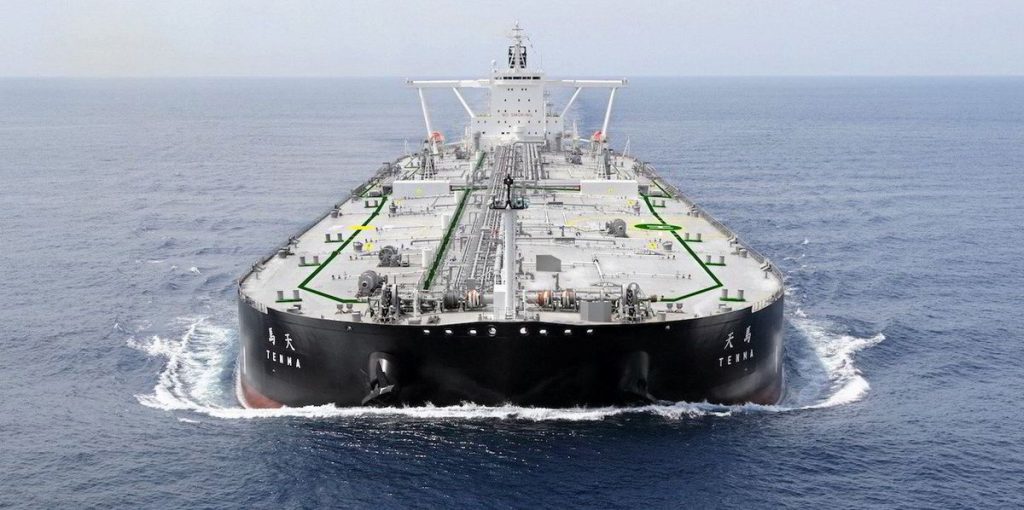
Concentrated traders lead a quick transition. VLCC oil Tanker Photo: Japan Marine United
Ribhu Ranjan, Platts S&P Global
NEW YORK
EnergiesNet.com 10 24 2024
Brazil has displaced Malaysia to handle the majority of the bitumen blend supplies to China in September, dampening the Southeast Asian country’s role in sending Venezuelan heavy crudes to the Far East, according to market sources and the latest data from China’s General Administration of Customs.
Malaysia has been China’s top bitumen blend supplier for a decade, according to GAC. Venezuelan heavy crudes, mainly Merey 16, gradually became the whole component of the bitumen blend barrels that head to China. Since 2019, Malaysia has handled almost all of these Latin American cargoes along the flow by issuing its certificates of origin and renaming them as bitumen blend to circumvent Chinese taxes, import restrictions and US sanctions, market sources said.
But since July, Brazil, Trinidad and Tobago, as well as Indonesia have been involved in the Venezuela-China transaction chain to narrow Malaysia’s market share.
As a result, the country along the Malacca Strait was absent from the bitumen blend supplier list for China’s bitumen blend imports in September.
Bitumen blend imports from Malaysia fell from 736,249 mt in July to 152,227 mt in August and to nil in September, GAC data showed.
Brazil, however, emerged in the supplier list released by GAC in July for the first time with 108,299 mt arrivals. The volume from the Latin American country rose in the third quarter and reached 768,853 mt in September to account for 72.7% of China’s total bitumen blend imports of 1.06 million mt in that month.
Meanwhile, Indonesia was the origin of 280,167 mt bitumen blend arrivals in September, the data showed.
This means these countries became more competitive than Malaysia in granting the certificate of origin to the sanctioned Venezuelan cargoes.
Banks tighten scrutiny
The displacement of Malaysia from the transactions is likely for smoothening the financial process, sources with knowledge of the matter told S&P Global Commodity Insights.
“Chinese local banks have tightened scrutiny, restricting payments to Malaysian-origin bitumen blend,” one of the sources said, adding “other countries are willing to take the position as Malaysia, making the flow to continue.”
“Sending the cargoes from Venezuela to Brazil, or other Latin American countries, for documentary work lengthens the voyage to China, but could be safer for making payments,” a trade source said.
Moreover, very few trading firms are involved in the Venezuela-China transaction, making it a quick transition in a few months to change the providers of the origin certificates, sources added.
In comparison, Malaysia remains the certificate of origin issuer for Iranian crudes, market sources said. There are more suppliers for Iranian cargoes to China than for Venezuelan barrels, and fewer countries are willing to be involved in the chain along the voyage between the Middle East and the Far East.
Stable offers
Bitumen blend cargoes for December delivery were heard offered at a discounts of around $11/b against the ICE Brent futures on a DES Shandong basis, according to trade sources.
Those offers were largely stable compared with November cargoes, but supply remained tight as normally two to three VLCCs of those cargoes were heading to China, with the bulk heading to the US and Europe, sources said.
Demand for bitumen blend from independent refineries has improved slightly in October during the peak demand season compared with September but is likely to fall again in November when temperature cools down, sources said.
These cargoes are feedstocks for China’s independent refineries to produce asphalt for paving roads, with fine by-products such as gasoline and gasoil.
China’s independent refiners imported about 1.05 million mt of bitumen blend in September, 23% higher from August, according to GAC data.
In the first nine months of 2024, the bitumen blend imports were down 30% year on year at 6.63 million mt, GAC data showed.
China’s bitumen blend suppliers (‘000 mt)
| Jan-Sep 2024 | Jan-Sep 2023 | Change | |
| Malaysia | 4,405 | 9,191 | -52.10% |
| Brazil | 1,425 | – | – |
| Trinidad and Tobago | 305 | – | – |
| Indonesia | 280 | – | – |
| Venezuela | 194 | – | – |
| Total* | 6,630 | 9,481 | -30.10% |
Source: General Administration of Customs
spglobal.com 10 22 2024











